Rhode Island is very generous to libraries in affluent suburban communities and relatively stingy to the libraries in poor urban cities. In fact, the state library funding formula funnels the most state aid per resident to, in order most to least: Barrington, Jamestown, North Kingstown, East Greenwich and Cumberland. The least state aid goes to, in order least to most: Central Falls, Pawtucket, Woonsocket, West Warwick and Providence.
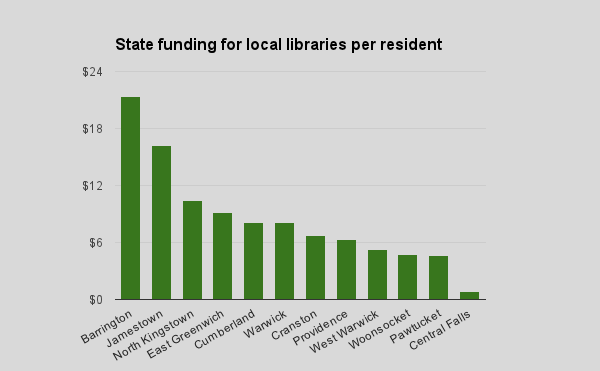
RI Future first reported this in March, 2014. The state funding formula for libraries is so regressive that even the Koch brother-aligned Center for Freedom and Prosperity recognized it needs to be altered in its Spotlight on Spending report last year. The attention inspired Rep. Maldonado and Sen. Crowley, both of Central Falls, to author legislation that would increase state library funding to the poorest cities in the state.
Fitzpatrick joined the chorus in his Sunday column, with an endorsement of Maldonado’s and Crowley’s bill. It is “absolutely a good idea because libraries are especially crucial sources of information and education in poorer communities, where fewer people have the money for laptops or books from Amazon,” he wrote.
It’s worth noting that Central Falls’ library was shuttered when the city went through bankruptcy and at the time the state gave more matching funds to Barrington than it would have cost to keep Central Falls’ library open.
]]>
“It says right in Rhode Island state law that free public libraries are essential to the general enlightenment of citizens in a democracy and that they are an integral part of the educational system at all levels,” said Central Falls Rep. Shelby Maldonado, the sponsor of the bill in the House. “The law also says that it’s the responsibility of government to provide adequate financial support for all free public libraries. In order for that to be done fairly and effectively, it’s only right that the state should increase library aid to distressed communities to cover their annual assessments to Ocean State Libraries.”
The Central Falls library was shuttered for a time as the city went through bankruptcy. Sen. Betty Crowley, the Senate sponsor of the bill, said only because of a few large, high profile donations does Central Falls have a functioning library. “If it weren’t for people like Viola Davis and Alec Baldwin, they would still be closed,” she said.
In spite of their generosity, the library in Central Falls can’t afford to open on weekends, and closes at 6pm on weekdays. This is an acute issue for Central Falls, said Maldonado.
“A lot of families here still don’t have broad band and don’t even have the internet,” she said. “Our kids don’t have the support they need.”
Crowley said the additional state aid “could enable us to open up on Saturdays.”
The legislation would direct about $500,000 from the general fund to libraries in the seven distressed cities: Providence, $284,423; Pawtucket, $65,124; Woonsocket, $53,107; North Providence, $48,437; West Warwick, $40,321 and Central Falls, $18,566. The amounts are based on the contribution each community makes to the Ocean State Library consortium, the umbrella organization for local libraries in Rhode Island.
The new revenue would come from the general fund, Maldonado said, and thus wouldn’t affect state library funding in other communities. “Leadership is open to the idea and we continue to have ongoing conversations,” she said.
Rhode Island’s state library funding formula matches city and town investment, a regressive method that rewards affluence and punishes poverty. Last year the state gave $337,167 in library aid to Barrington and $26,046 to Central Falls.
An RI Future investigation last year showed per resident Rhode Island gives the most library aid to: Barrington, Jamestown, North Kingstown, East Greenwich and Cumberland. The communities to get the least state library aid per resident were: Central Falls, Pawtucket, Woonsocket, West Warwick and Providence.
Deborah Barchi, director of the Barrington library and a past president of the Ocean State Libraries consortium, told RI Future last year she thinks the state funding formula for local libraries is fair. “Each town makes those decisions based on what they value,” she said. “No matter what metric you use, there would be somebody who would feel they weren’t getting enough money.”
But Steve Larrick, the Central Falls planning director and a member of the city library’s board of directors disagreed.
“We think the state needs to play a role in our urban libraries,” he said at the time. “Barrington doesn’t need a library to have access to tremendous resources,” he said. “They have great access to broadband in their homes, and their schools are top notch. Their school library is probably better than our public library. A dollar spent there will not be as meaningful as a dollar spent on the Central Falls library.”
Even the very conservative Center for Freedom and Prosperity, in its spotlight on spending report last year, agreed the state library aid formula is highly regressive.
“It isn’t often that we get to agree with our progressive friends on a matter of government spending, but RIFuture editor Bob Plain noticed that the state gives extra library aid to some communities because they’re able to invest more in their own facilities,” according to its report. “Consequently, Barrington receives over $20 per resident to subsidize its gem of a library while urban residents receive less than $10.”
The Senate Finance Committee will consider the bill today after the full Senate convenes.
]]>
A new report from the Economic Policy Institute (EPI) by Richard Rothstein titled The Making of Ferguson: Public Policies at the Root of its Troubles puts some of the recent brouhaha over RhodeMap RI into keen perspective. We all know the story of the police murder of Mike Brown in the St. Louis suburb of Ferguson, MO, the high profile demonstrations from the black community in response, and the heavy handed, militarized police reaction. The US Department of Justice released a shocking report of systemic racism and economic exploitation of the black citizens of Ferguson, but the report from the EPI provides insight into how a racially segregated, predominantly low income African-American community like Ferguson can develop in the first place.
Rothstein begins by blaming racial prejudice and racist public policy. “No doubt, private prejudice and suburbanites’ desire for homogenous affluent environments contributed to segregation in St. Louis and other metropolitan areas. But these explanations are too partial, and too conveniently excuse public policy from responsibility. A more powerful cause of metropolitan segregation in St. Louis and nationwide has been the explicit intents of federal, state, and local governments to create racially segregated metropolises.”
It’s important to understand that the policies Rothstein exposes in his report are not located only in the immediate area of St. Louis, these policies existed across the nation, and even where such policies no longer officially exist, their effects can still be felt today. These policies, according to Rothstein, include:
- Government subsidies for white suburban developments that excluded blacks, depriving African Americans of the 20th century home-equity driven wealth gains reaped by whites;
- Denial of adequate municipal services in ghettos, leading to slum conditions in black neighborhoods that reinforced whites’ conviction that “blacks” and “slums” were synonymous;
- Boundary, annexation, spot zoning, and municipal incorporation policies designed to remove African Americans from residence near white neighborhoods, or to prevent them from establishing residence near white neighborhoods;
- Urban renewal and redevelopment programs to shift ghetto locations, in the guise of cleaning up those slums.
 RhodeMap RI was developed with an understanding of many of the problems Rothstein cites. The public review draft of RhodeMap has a section at the end concentrating on social equity that explicitly called on the plan to “implement a new economic model based on equity, fairness, and opportunity.” It is this part of the plan, the part that seeks to undo the kind of problems that plague communities of color like Ferguson, that seems to most bother RhodeMap opponents.
RhodeMap RI was developed with an understanding of many of the problems Rothstein cites. The public review draft of RhodeMap has a section at the end concentrating on social equity that explicitly called on the plan to “implement a new economic model based on equity, fairness, and opportunity.” It is this part of the plan, the part that seeks to undo the kind of problems that plague communities of color like Ferguson, that seems to most bother RhodeMap opponents.
Rothstein takes a shot at offering possible solutions towards the end of his report, writing, “Many practical programs and regulatory strategies can address problems of Ferguson and similar communities nationwide.” For instance, governments might “require even outer-ring suburbs to repeal zoning ordinances that prohibit construction of housing that lower- or moderate-income residents – white or black – can afford. Going further, we could require every community to permit development of housing to accommodate a ‘fair share’ of its region’s low-income and minority populations…”
- Racial injustice vs. property rights: Ferguson and RhodeMap
- Gary Morse stokes suburban fears with racially charged half truths
- Setting the record straight on RhodeMapRI
- RhodeMapRI opponents fear future plans, affordable housing
Rhode Island has something of a fair share law (as part of the Rhode Island Comprehensive Housing Production and Rehabilitation Act of 2004 and Rhode Island Low and Moderate Income Housing Act (Rhode Island General Laws 45-53)) which sets a 10% goal for each of the state’s cities and town to meet—the goal being that 10% of the units in a town are “affordable.”
Most of the pushback against RhodeMap comes from communities that have very little affordable rental housing and are predominantly White. Legislation to undermine existing laws requiring cities and towns to plan for affordable housing is part of that pushback , such as House Bill 5643, which would “eliminate the mandate requiring cities and towns to include an affordable housing program in their comprehensive plans” or House Bill 5644 which “would remove the mandate requiring cities and towns to include an affordable housing program in their comprehensive plans and would provide an opt-out provision regarding any provision in the state guide plan regarding affordable housing and any related land use provisions” are naked attempts to keep affordable housing, and those who need it, out of their communities.
The legislators who are introducing and supporting the bills are all Republicans, or in one case an “Independent” representing primarily suburban and rural communities like Richmond (Note: part of Rep. Justin Price’s district), West Greenwich (part of Rep. Sherry Robert’s district) Coventry, Hopkinton, Charlestown, Portsmouth, Exeter and East Greenwich. Note that Richmond and West Greenwich have made “no progress” and East Greenwich has made “no significant progress” in meeting the 10% goal.
Undoing the damage of decades of racist housing policy and preventing future Fergusons requires a plan. RhodeMap RI isn’t quite that plan, it’s more a collection of guidelines to help communities develop a plan, but it’s a good step in the right direction. Those opposed to RhodeMap like to put on their “free market” hats and declare that any government intervention into housing is some sort of fascist violation of property rights. However, racially segregated housing is the product of just the kind of government sponsored social engineering that RhodeMap opponents complain of, and many of those opponents have also waged fights to prevent construction of affordable rental units in places such as Barrington and East Greenwich.
To be consistent these defenders of the free market should be calling for a repeal of all zoning restrictions in their communities, but of course they will not. Instead, they will zealously guard the status quo by defending zoning laws that the prevent construction of low income housing too close to their safe suburban enclaves. Opponents of RhodeMap object to being called racists, but when their claims of defending property rights are not equally applied to property owners who want to build affordable housing on their land, what else are we to think?
]]>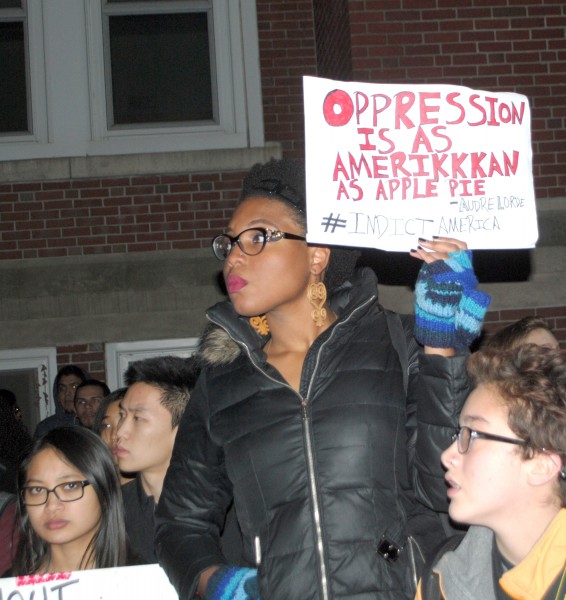 There are two political gatherings today in Rhode Island that may have more in common with each other than it seems on the surface.
There are two political gatherings today in Rhode Island that may have more in common with each other than it seems on the surface.
In Providence, there is a “march against police violence” in solidarity with the on-going Ferguson protests at Burnside Park, 7pm. In North Kingstown, there is an “informational meeting” about the ongoing RhodeMapRI flap at the Carriage Inn, also 7pm.
These two events will look much different. The march is at the center of urban Rhode Island and the meeting is on the outskirts of the suburbs. The march takes place on public property while the meeting is being hosted by the private sector. The march starts at the same park where Occupy Providence protested. The meeting is at a new upscale restaurant; salad = $9, steak = priced to market. The march will be multiracial while the meeting will be mostly white people. At face value, they will even be voicing very different messages: the march will focus on racial injustice while the meeting will focus on property rights.
But a deeper look at their concerns shows they are both dancing around the same issue. In Rhode Island life is nice in the suburbs, and some people want to preserve that. Life is not as nice in our cities, and some people want to change that. It’s absolutely not a coincidence that the area where people are looking for change are predominantly populated by Black and Brown people while the areas where people are looking to keep things the same are predominantly populated by White people.
The marchers want police to wear body cameras in hopes it will make law enforcement more accountable when tragedy occurs. But the people opposed to RhodeMapRI are vociferously opposed to any and all new government expenditures. The anti-RhodeMapRI activists feel strongly that affordable housing programs are bad, and that neighborhood planning is best left to market forces. Ferguson activists believe the invisible hand is largely responsible for the continued racial divide in Rhode Island and more, not fewer, public sector tools are needed to remedy this.
“We are fed up with economic injustice and inequality,” reads a Facebook invite about the march. “We are fed up with institutionalized systems of racial oppression. We are fed up with a system that serves the ruling class instead of the people.”
“All citizens of our state should be made aware of this most insidious plan which will deconstruct our American Dream right here in Rhode Island if allowed to be adopted!” reads a Facebook invite about the meeting.
Both events are about the American Dream. The Ferguson activists want more access to it. The anti-RhodeMapRI activists want to keep it for themselves.
]]>The Barrington library has more than 129,000 print items on its shelves and lent out 384,257 materials last year. The Central Falls library has about 34,000 print items on the shelves and lent out 14,994 materials last year. Barrington’s library is open seven days a week, and Monday through Thursday it’s open for 12 hours a day – 9 am to 9pm. Central Falls’ library is open six days a week; five hours a day on Saturdays and seven on weekdays. Barrington’s library employs 45 people, 15 of them full time, and Central Falls employs two full time and two part time people. The Barrington library’s annual budget is just over $1.5 million and the Central Falls library’s budget is $165,000.
Another difference is the amount each will get in state aid this year. Governor Chafee’s proposed budget would give $341,488 to Barrington and $17,569 to Central Falls. That’s because state library aid is appropriated based on a library’s budget rather than its need.
Here’s the law: “For each city or town, the state’s share to support local public library services shall be equal to at least twenty-five percent (25%) of both the amount appropriated and expended in the second preceding fiscal year by the city or town from local tax revenues and funds from the public library’s private endowment that supplement the municipal appropriation.”
As such, state taxpayers generally send more dollars per resident to suburban libraries than to urban libraries.
Deborah Barchi, director of the Barrington library and a past president of the Ocean State Libraries consortium, thinks the state funding formula for local libraries is fair.
“Each town makes those decisions based on what they value,” she said. “No matter what metric you use, there would be somebody who would feel they weren’t getting enough money.”
But Steve Larrick, the president of the Central Falls Public Library Board, disagrees.
“We think the state needs to play a role in our urban libraries,” he said. Rhode Island “needs to do a better job of thinking about these social determinants.”
Larrick, who is also the town planning director in Central Falls, explained what he meant about social determinants.
“Barrington doesn’t need a library to have access to tremendous resources,” he said. “They have great access to broadband in their homes, and their schools are top notch. Their school library is probably better than our public library. A dollar spent there will not be as meaningful as a dollar spent on the Central Falls library.”
Central Falls almost lost its library when the city filed for bankruptcy two years ago. Receiver Bob Flanders closed the library and a grassroots community effort aided by New York Times coverage and a $10,000 donation from Alec Baldwin, kept the doors open. But operating expenses were decimated, and because the funding formula uses budget numbers from two years ago it is hitting them in state funding this year.
“For this year and next year, the average is really down because of the bankruptcy,” Larrick said.
I asked Governor Chafee to comment on the disparity in funding between the Barrington and Central Falls libraries. Spokeswoman Faye Zuckerman sent this:
“As Governor, a former mayor and city councilor, Governor Chafee has been an advocate for Rhode Island’s cities and towns. Throughout his years in office, he has been working to reverse the damage done by the past administration to municipalities and the Rhode Island property taxpayer.”
]]> Is equal equitable with regard to state education funding? As it happens, even a progressive state funding formula isn’t equitable when it comes to helping Rhode Island’s economically diverse cities and towns provide an adequate education to all.
Is equal equitable with regard to state education funding? As it happens, even a progressive state funding formula isn’t equitable when it comes to helping Rhode Island’s economically diverse cities and towns provide an adequate education to all.
That’s what Pawtucket and Woonsocket are arguing before the state Supreme Court in a case that claims the state is unconstitutionally depriving these two school districts of its ability to properly educate its children.
The Department of Education says that the state constitution doesn’t obligate it to provide an adequate, equal or equitable education – only that it “promote” public education. Furthermore, many suburban school committee members, policy analysts and small government activists have pointed out that Rhode Island already imposes a progressive (i.e. not regressive) formula for funding local school districts based on need.
Comparing per-pupil spending between some of Rhode Island’s richest suburbs and poorest cities, it seems they are correct. Barrington and East Greenwich get about 10 percent of their per-pupil education budget from the state and Woonsocket and Pawtucket get more than 60 percent per pupil from the state. In 2014, the state will pay $8,562 per pupil in Woonsocket and $8,270 in Pawtucket. Conversely, the state will pay $1,056 per pupil in Barrington and $987 in East Greenwich. (Ed. note: RIDE does not keep per pupil state aid data, according to RIDE spokesman Elliot Krieger, but you can do the math by dividing column H of this spreadsheet by column A of this spreadsheet, according to RIDE’s Office of Statewide Efficiencies Director Cynthia Brown.)
“At an order of magnitude difference Rhode Island’s funding formula sure does a lot of work to equalize spending,” said Jason Becker, who helped author the 2010 funding formula that Woonsocket and Pawtucket are challenging in court. “I don’t see how the state could do more without dramatically increasing the amount of state funding for education. With our budget and revenue issues I don’t see that happening anytime soon.”
But even with a progressive funding formula (the previous formula was not dramatically different for the richest and poorest communities) the results have been unequivocally regressive.
Take NECAP test results, for example. Barrington and East Greenwich 11th graders both scored 70 percent proficient on their math NECAP while Woonsocket 11th graders were 21 percent proficient and in Pawtucket 20 percent were proficient.
Perhaps the answer lies not within how much the aid the state gives each district, but how much aid each district needs. As Becker notes, the state funding formula equalizes spending. Even though Woonsocket and Pawtucket students have vastly different educational needs than East Greenwich and Barrington students, all four educations cost roughly the same.
In 2011, the most recent year I was able to find data on RIDE’s website, (Ed. note: still waiting to hear from RIDE Statewide Effeciencies Office if there is more recent data elsewhere), the average Woonsocket student cost $13,485 to educate and the average Pawtucket student cost $13,007. Meanwhile, the average East Greenwich student cost $13,973 and the average Barrington student cost $12,708. UPDATE: 2012 comparison here, courtesy of Elliot Krieger.
That may be equal. But considering the affluent suburbs seem to be able to do much more with a similar amount of money, it doesn’t seem equitable. Not even close.
East Greenwich recently built a brand new, “state-of-the-art” middle school building and also completed three major construction projects at the high school including an astroturf football stadium, a new entrance facade and new science labs. And next year, the EG School Committee plans to give every high school student their own laptop computer and add a staff member to facilitate the new program.
Meanwhile, this is what Providence City Councilor Sam Zurier, who is litigating the equitable funding lawsuit on behalf of Pawtucket and Woonsocket, said about the situation in Pawtucket:
“Pawtucket cannot afford to issue a separate text book for every child in some of its schools. You have laboratories with mold in them, the plumbing doesn’t work. You have classes in the elementary school that has two grades being taught by the same teacher. It’s often the case that schools run out of paper this time of year.”
]]>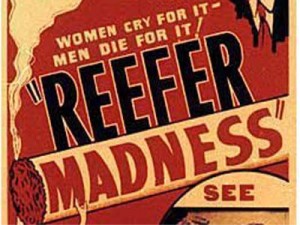 The Providence Journal op/ed page ran two opposing letters to the editor this morning regarding marijuana legalization but only identified one writer as an advocate with a special interest – even though the unidentified writer is paid through a federal grant to advocate specifically against marijuana.
The Providence Journal op/ed page ran two opposing letters to the editor this morning regarding marijuana legalization but only identified one writer as an advocate with a special interest – even though the unidentified writer is paid through a federal grant to advocate specifically against marijuana.
In one letter, Jim Vincent was well labeled as being the executive director of the Providence branch of the NAACP in which he wrote, “Marijuana prohibition has not prevented use or abuse. More disturbingly, enforcement has disproportionately focused on low income and minority communities.”
However, Debby Richards Perugini, who wrote a blistering critique of a ProJo news story, calling it one-sided journalism, was not identified as working for The BAY Team,” Barrington’s Drug Free Coalition,” according to its web site.
Perugrini’s public Facebook profile lists her as being a “project coordinator” for The Bay Team. A Barrington Patch article from 2012 says she was hired specifically to campaign against marijuana. According to the article: “Meet Debby Perugini — Barrington’s new anti-marijuana use project coordinator. Perugini joined the staff of The BAY Team – the town’s substance abuse prevention coalition — on Monday, Jan. 9.”
The letters seem intended to run in tandem: both were initially published online on Feb. 24 and both were published in print today. It’s unclear whether Perugini failed to identify herself as an advocate or if the ProJo op/ed page made an editorial decision to not label her as such. (I’ve reached out to both parties and will update this post if and when I hear back from them.)
In general, Perugini is entitled to express her opinions. In her letter, she claims that one of the medical marijuana centers was “recently advertising marijuana for non-medical use” which would be a crime. If this isn’t true (and I don’t think it is) it could be libel and she’s not entitled to express libelous opinions. Neither is the Providence Journal, for that matter. But she and the ProJo op/ed page are certainly entitled to make vague references to tobacco industry lies and insinuate that taxing and regulating marijuana will cause more people to buy it illegally.
But Rhode Islanders are entitled to know who is expressing these opinions and why – especially given that, according to the Patch article, Perugini is being funded by federal taxes for her efforts. It says:
“Perugini will be paid out of a federal block grant to the state department of behavioral healthcare, development disabilities and hospitals. The annual award is $75,000 for the next three to five years. Barrington is one of eight towns to get this money for substance abuse-prevention, primarily because Rhode Island ranks first in its marijuana use, especially in the 12-17 and 18-25 age groups.”
So a Barrington mom is getting federal tax dollars to write inflammatory and reactionary letters to the editor on an issue the Providence NAACP says is unfairly affecting poor and minority inner city residents. And the Providence Journal op/ed page is labeling one as a special interest but not the other.
Welcome to how the war on drugs works. Or the New Jim Crow. It all depends on whether your a parent from Barrington trying to shield teens from marijuana or an inner city advocate fighting against latent racism.
]]> Ken Block, the Barrington millionaire who recently switched from the Moderate Party to the Republican Party to run for governor, didn’t registered to vote until October of 1999, according to state and Barrington Board of Elections.
Ken Block, the Barrington millionaire who recently switched from the Moderate Party to the Republican Party to run for governor, didn’t registered to vote until October of 1999, according to state and Barrington Board of Elections.
He was eligible to vote on Nov. 8 of that year – one day after the nation-changing, SCOTUS-decided election between Al Gore and George Bush. Both offices said he has had a consistent record of voting in general elections since 2000.
But, according to Block’s campaign website, that means he lived in Rhode Island for at least 8 years without registering to vote. His website says he moved to Barrington is 1992 and indicates he has lived in state since 1991. (I don’t know where Block lived prior to that, or if he voted and/or was registered to vote there)
Last week, GoLocalProv reported on what it called an “investigation” into Clay Pell’s voting record (For the record, if you call the Board of Elections, they will give you this information). Since then it has done two additional posts on Clay Pell with no evidence it has investigated other candidates as well. Ken Block is a occasional GoLocal “mindsetter” and the right-leaning site highlights his news releases often.
If Block wishes to comment, I will update this post.
]]>
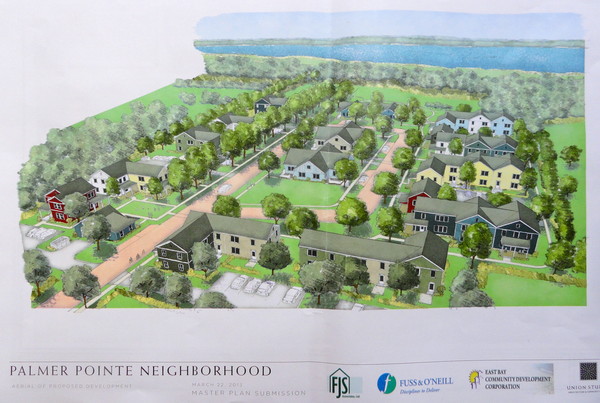
Good for the Barrington Planning Board for unanimously approving a controversial affording housing project.
I think.
“Multiple conditions” were placed on the project, according to the Providence Journal, including that at least 10 of the 40 units only have one bedroom. This condition would effectively limit the number of families with children that could live in the proposed Palmer Pointe development.
Barrington Patch reported that the applicants, the East Bay Community Development Corporation, will need to reassess the project. “Three representatives for EBCDC … were very pleased with the outcome, although [housing consultant Frank] Spinella said: ‘We need to determine whether it remains feasible with the conditions.'”
The proposed affordable housing project was controversial because an organized group in this upper-income suburb don’t think it’s fair that poor people get to live in subsidized housing in their community, and that the new development would increase traffic.
Barrington, nicknamed Borrington, has the highest real estate value, median income and NECAP scores in the state. It’s also been pretty good at keeping affordable housing projects out of town. State law requires there be 527 units of designated affordable housing but there are only 160.
]]>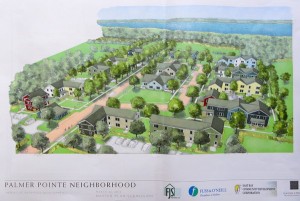
Jim Hummel, an independent journalist who lives in Barrington, took a very different tack than me on the issue of affordable housing in Rhode Island’s favorite suburban utopia.
Last fall, he reported Barrington actually has a lot of housing that meets the state’s definition of affordable housing, but that not much of it fits what he called the “intricate formula set by the state.”
Here’s how Gary Morse, the Barrington anti-affordable housing advocate that Hummel’s report relies upon, put it: “It has the illusion that everybody in Barrington is wealthy when, in fact, one third of the entire town could quality for affordable housing and one third of the houses in Barrington actually fall into the affordable guidelines.”
This isn’t true. The reality of the situation is there are many homes in Barrington that meet one criteria of the state’s definition of affordable housing: the median income component.
Affordable housing means housing which costs a third of a paycheck for folks who make about the median income, give or take 20 percent whether they rent or own. More precisely, it means this definition.
In Barrington, the median family income is $117,000 a year. Those who make 20 percent less than that are still making more than $93,000 a year, those who make 20 percent more are making $140,000 annually. You can find a pretty nice piece of real estate anywhere – even Barrington – on that budget! But don’t forget, it’s the median “area” income, not town, so the numbers aren’t quite so stark. According to Hummel, “For a family of four the “affordable house” price would be about $315,000 or under.” (note the scare quotes)
Of course, there are other components to what constitutes affordable housing, such as a 30 year deed restriction. This means, for practical purposes, that if you own real property that takes advantage of affordable housing laws that you are encumbered by them for three decades. If not for such deed restrictions, affordable housing would come to mean little more than zoning relief and a temporary tax shelter for developers.
For Morse, Hummel says “the issue is not wealthy people trying to keep others out – but equity for those who live in what could be considered affordable housing – but don’t get tax breaks and other benefits given to projects like these.”
Again, this isn’t true. There is no legal relief being offered to any affordable housing owner/developer that isn’t available to Morse or any of the people he says he represents. If they want to live with a 30 year deed restriction on their Barrington real estate, they can decrease the amount they pay in property taxes.
Here’s how Hummel put it: “So while a modest house like this one is paying nearly $4,000 a year in taxes and is subject to the town’s periodic revaluation, the house in this affordable housing development, as defined by the state, has assessments that are locked in for 30 years. The only increase comes as the tax rate increases, but the assessments don’t.”
What he leaves out is that they also retain the right to sell their real estate for whatever profit they can make off it. Historically, that’s been worth a more than a tax break in the town of Barrington.
So what is it Gary Morse is driving at?
Does he want to alert Barrington residents making between $90,000 and $140,000 a year that they, too, are eligible to get a tax break for helping their community reach its state-mandated allotment of affordable housing units? Maybe. Depending on what you think of the future trajectory of Barrington property taxes versus real estate value that might indeed be a wise financial strategy.
Does he want the affordable housing definition altered in a way that means if and when subsidized housing is built in Barrington that it will attract the truly destitute instead of upper middle class families? Maybe that too. As I specifically argue in this piece, this would make Barrington a lot nicer of a place to live.
This is what he says his issue is: “…now suddenly many of those residents who are not living in affordable housing, but living on the financial edge, they are going to be asked to support lifestyles and property taxes for those who have much more. This is what I really find to be a problem with how this is being implemented.”
On this point, I am in complete agreement with Gary Morse. But something tells me he isn’t lobbying his state legislators for tax equity. Hummel didn’t ask. He did, however, ask Town Council President June Speakman if she considered asking the state to help Barrington pay for its own affordable housing. Hummel’s a better reporter than me if he can pull this question off with a straight face. Or maybe it’s easy to become myopic when you don’t have any poor people living in your neighborhood.
]]>